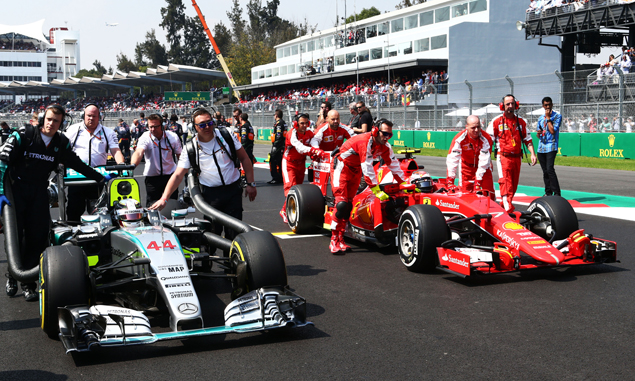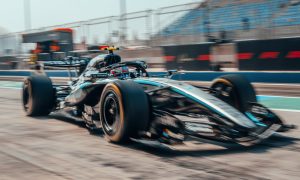
Mercedes did not want its advantage to be locked in by power unit development restrictions, according to Andy Cowell.
2016 sees a relaxation of regulations which had initially blocked off certain areas of the power unit from development, at the time effectively limiting where manufacturers could work to catch up with Mercedes. Cowell - who is managing director of Mercedes AMG High Performance Powertrians - says the way the original regulations prevented rivals from closing the gap was negative for the sport.
"The regulations have now changed so that for this year the black boxes have disappeared, so you can work on any area of development inside the token restriction," Cowell said. "This year it is 32 tokens, you can spend them all at Melbourne if you want, spend them all at Abu Dhabi if you like or you can do what you like in between. But there are no exclusion zones or black boxes.
"Why did we remove the black boxes? That was removed because we didn’t want any of the manufacturers to be locked into a situation where they have got a good idea but they can’t introduce it because of the black box.
"We don’t want a scenario where any of us say we can’t catch up because of the rules. I think any set of rules that make it harder for people to catch up is bad."
From 2017 the power unit token system is set to be scrapped, opening up the freedom to make radical changes to engine design.
Eric Silbermann: No news is no news
Haas previews its F1 testing debut
Key dates for the 2016 F1 season
Keep up to date with all the F1 news via Facebook and Twitter







